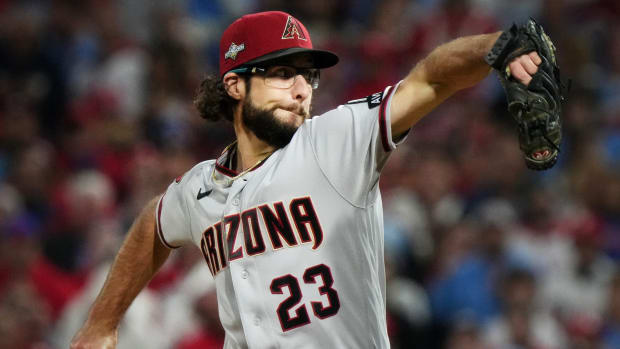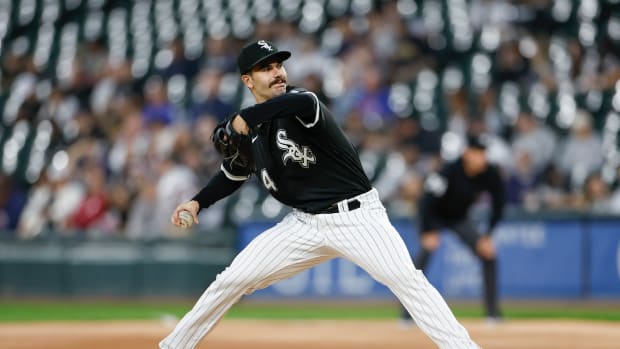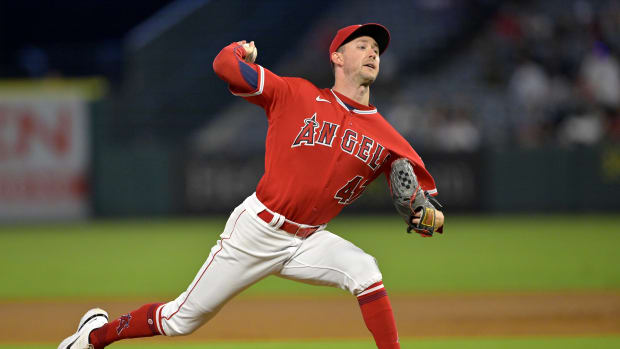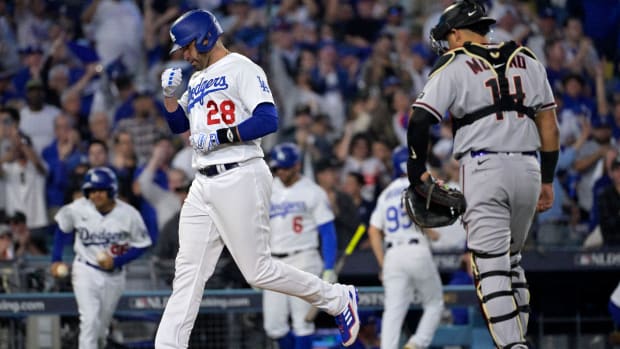SI's 2009 MLB Scouting Reports
Athletics" title="Oakland Athletics"/>
SI Prediction: 2nd in AL West
To demonstrate what it was like pitching for Oakland last season, righthander Sean Gallagher pretends to toe an imaginary rubber and then starts shaking. "You're pitching scared," Gallagher explains. "They get a guy on second base, and you're thinking, He can't score, he can't score. Then you give up a run and you're like, Oh, my God, they can't score any more, they can't score any more. As much as you wanted to tell people that it didn't affect you, it did."
The 2008 A's paired a solid if stripped-down rotation with a very bad offense, to disastrous results. Not only did they lose 86 games for the second year in a row, but they also jeopardized the confidence of young pitchers who were supposed to become their foundation. "If we keep scoring two runs a game," general manager Billy Beane said after the season, "it's going to be terrible for their development."
So Beane swung the boldest trade of the off-season, shipping closer Huston Street, lefthanded starter Greg Smith and centerfielder Carlos Gonzalez to Colorado in November for power-hitting outfielder Matt Holliday, who is entering the last year of his contract. The deal surprised no one more than Holliday himself, who assumed he was ticketed for St. Louis. When he finally got around to asking Beane why a small-market team that lost 86 games would want him, he was satisfied with the response. "Billy told me they pitched really well and wanted to add offense," Holliday says. "He felt the team was close."
By trading for Holliday and signing free agents Jason Giambi and Orlando Cabrera, Oakland won't have one of the majors' worst offenses anymore. But the pitching staff, which allowed the third-fewest runs in the American League last season, remains its future. After Justin Duchscherer -- out until at least mid-May after having elbow surgery this spring -- Gallagher and Dana Eveland there is a glut of strong-armed prospects such as Brett Anderson, Trevor Cahill and Vin Mazzaro, none of whom are older than 22. The A's will be careful to limit the innings of their young starters; of the three top prospects, only Mazzaro (171) threw more than 125 innings in the minors last season. Anderson, however, who has not pitched above Double A, was so impressive this spring that he will likely begin the season as the fifth starter.
To limit the wear on his young starters, Bob Geren has a deep bullpen that he can stretch out. Last season closer Brad Ziegler pitched 39 straight scoreless innings and had five multiple-inning saves, Joey Devine (whose ability to miss bats makes him a full-time closer-in-waiting) had an 0.59 ERA, and middle reliever Jerry Blevins held lefties to a .193 batting average.
On July 11 the A's were only four games behind the Angels in the AL West. Then they lost 44 of their last 68, worn down by injuries and salary-dumping trades. (Between December 2007 and last July, Beane dealt his three best pitchers -- Dan Haren, Rich Harden and Joe Blanton.) But there was an upside to it all. Those trades helped position Oakland to be unusually aggressive this off-season, when so many other teams were counting their nickels. Outside of the Yankees, no one helped themselves more this winter than the A's, and few teams were hit harder than the Angels, their primary competition in the division.
The A's are trying to turn back the clock to 1999, when righthander Tim Hudson made his major league debut, followed by lefty starters Mark Mulder and Barry Zito the next season. Oakland finished second in the division in '99, then made the playoffs in each of the next four seasons, winning more than 100 games twice. The only remaining links from that era to this one are Giambi and Eric Chavez, who both helped create the team's play-hard, party-hard persona.
Asked if the A's can replicate that identity, Chavez says, "Oh, it can definitely happen again, but when we were young, we produced, and we produced right away. That will be the key for this group. Some young guys come up here, get talked about a lot and then bounce back and forth from Triple A. The good ones come up, you talk about them, and they stick."
-- Lee Jenkins
Issue date: April 6, 2009


































